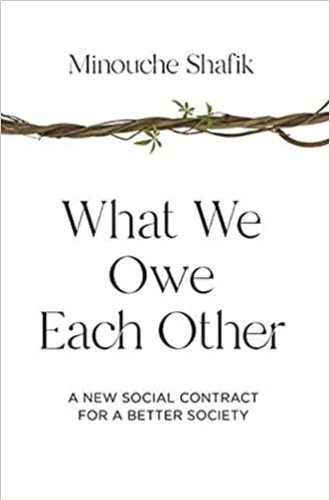Our social contract needs to be renewed
Economist Minouche Shafik puts public policy at the heart of her vision.
Minouche Shafik has spent years trying to hold up society’s end of the social contract. She previously worked as deputy governor of the Bank of England, deputy managing director of the International Monetary Fund (IMF), permanent secretary of the Department for International Development, and vice president of the World Bank. Now, as director of the London School of Economics and Political Science, Shafik is integrating her decades of experience to reflect on the state of the social contract around the world.
In What We Owe Each Other, Shafik makes a compelling argument that the social contract—our mutual understanding of what people owe each other as part of a shared society—is in need of renewal. For her, strengthening the social contract is not so much about crafting a shared philosophy; it is more concretely about governments implementing policies that put such a philosophy into practice.
Over the course of the book, Shafik takes her reader on a whirlwind tour of research and public policy about child care, education, health, work, old age, and our intergenerational obligations. Although she continually frames her arguments as forming a new paradigm for the social contract, none of her proposals seems terribly novel. Instead, I see this book as an effective summary of neoclassical European liberalism. In contrast to Margaret Thatcher’s famous quip that “there is no such thing as society,” Shafik opens her book with the simple, strong claim that “society is everything.”





